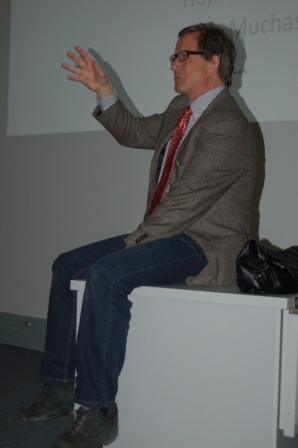
“Language and Linguistics, with their sensitivities to language, culture and context and issues of social inclusion and exclusion, are well-positioned to help our societies and also our universities to advance social justice and more inclusive social and academic cultures,” Dr Saleem Badat, the Vice Chancellor of Rhodes University said in opening Interactions and Interfaces, a conference about language being hosted by the university;s Department of English Language and Linguistics.
Scores of linguists from different places in South Africa and the world braved the rain and chilly weather to gather on Sunday 26 June, for the grand opening of the conference.
This conference is being hosted, in collaboration with Linguistics Society of Southern African (LSSA), Southern African Applied Linguistics Association (SAALA) and South African Association of Language Teachers (SAALT).
Speaking on the sidelines of the conference, chief organizer Dr Sally Hunt expressed her enthusiasm saying, “The conference is an opportunity for linguists of different types from different places to get together and to learn from each other and support each other”.
The opening keynote address was made by Pieter Muysken, who is professor of Linguistics at Radboud University Nijmegen (Netherlands).
In his address, entitled “Roots of Ethnolects”, he discussed how the Dutch language is changing in a wide variety of interesting ways as a result of immigration. This immigration has given rise to numerous new varieties of Dutch, called ethnolects, flavoured by Yiddish, Turkish, Moroccan and Indonesian influences.
Highlighting the effects, he said that even Dutch-born young people are adopting parts of these ethnolects, adding certain fashionable words from them to their vocabularies. However, these ethnolects can cause communication problems, particularly putting their speakers at a disadvantage in job interviews.
Muysken's talk was the first of a series of addresses that will be given by keynote speakers at this conference, which runs until Wednesday, 29 June.
Article by Ruth Chatukuta
Photo by Ju-ann Hockly
